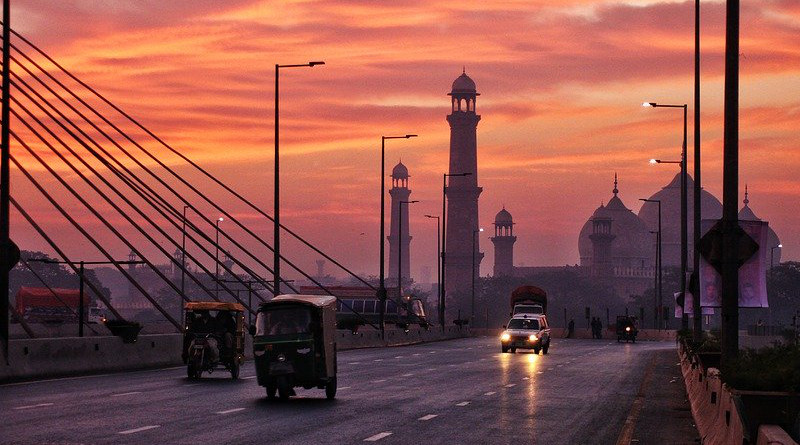Pakistan’s Economic Woes And How It Can Come Out Of Woods – OpEd
The operating system of current world order is political economy. Strong economy contributes to the health of any country and provides it political leverage in international arena. Post Covid-19 crisis, world is witnessing an economic recession with a colossal wave of inflation. Since the Second World War, Post Covid-19 recession is the deepest one in advanced economies. Pakistan is one of those ill-fated states which is facing an unprecedented economic downturn with an obscure future progress. But, Pakistan’s economic woes are not just confined to the Covid-19 breakout, there have been a massive mismanagement of resources and corrupt practices that brought the country to this level of insecurity.
Successive governments under their respective political leadership took massive loans from international financial organizations but they didn’t use them for sustainable developmental projects. While their performance in the political arena on the basis of ethnicity, baradari system and domestic wheeling dealing has weathered the seasons, their handling of economic matters has remained below par regardless of which political party remained in the government. Corruption, mismanagement, and useless allocation of budget has created a havoc in the country.
If we calculate the amount of external debts heaped on Pakistan’s economy by successive governments, the stats show; In PMLN’s tenure from 2013 to 2018 the external debt was Rs 35.9 Trillion (195% increase), in PPP’s tenure from 2008 to 2013 the external debt was calculated to be Rs 3 trillion (194% increase) and last but not the least in PTI’s tenure the external debt was Rs 23.6 trillion (203% increase). If we talk about the dollar exchange rates in Pakistan; in People’s Party’s tenure the dollar exchange rate was Rs 70 to Rs 101 (144% increase) against $1 USD while in Pakistan Muslim League (N) tenure it was Rs 101 to Rs 121 (119% increase) against $1 USD and in PTI’s tenure it was Rs 121 to Rs 182 (150% increase) against $1 USD, and in PDM’s short tenure it rose to Rs 182 to Rs 250 (137% increase).
This data shows that country continued to plunge in deeper economic crises in each political party’s tenure as these parties mostly kept their focus on doing the politics alone rather than working on the economy of Pakistan. External debt and heavy borrowing were used to conveniently navigate the mandated tenures and no concrete economic reforms were taken primarily due to sheer incompetence and economic illiteracy.
According to Senator Saleem Mandviwalla, there was a 50% devaluation of Pakistan Rupee in the three-year rule of PTI government. This devaluation caused a massive wave of inflation to create chaos in the lives of people in Pakistan. The import of edible oil, wheat sugar, pulses, and other food items triggered an unrest among the masses.
The country’s expenditures have increased to Rs7.5 trillion from Rs4.2 trillion with a rise in mark-up payment of Rs 3,000 billion due to the re-profiling of government debt by the PTI government. The external debts and liabilities increased from $95 billion to $127 billion adding massive troubles to the country and more debts than any of the previous governments. In an interview the former Finance Minister of PTI said Economic planning took time and that caused retardation,”. Another failure of the PTI government was its inability to fix the state-owned enterprises (SOEs) — an area in which the PTI government achieved “nothing,” said Mr. Tarin. He further asserted that before assuming power the PTI did not have any economic plan to run the government successfully. Mr. Tarin also accepted the failure to develop a “trading floor” that the government could use to hedge against the upswing in the global prices of commodities, he added.
However, the ongoing political debate is of no use and will further aggravate the economic degradation unless all political stakeholders and the supporting institutions own this economic mess as of our own making rather than typical blame game and mudslinging each other. It can be said that rather than doing politics around political engineering, it’s high time that political parties immediately start talking of “economic engineering” wherein they all sit together and find solution to the simmering systemic economic problems confronting Pakistan. This appears to be the only way forward for Pakistan to come out of the woods for good.
According to Dr. Farrukh Saleem, “Pakistan’s economy is manageable as we have all the resources. There are only two missing elements stability & policy predictability.” “Freeing the country from its economic calamities should not be a matter of party affiliation, but a common task for all political actors who want to see Pakistan flourish,” says Dr. Hafiz A Pasha, Professor at BNU and former Federal Minister. It’s better late than never. If there is any kind of engineering required to be done in Pakistan it’s the “Economic Engineering” to take Pakistan out of current economic crisis and lead towards path of economic self-sufficiency and prosperity.
About Author: Humais Sheikh, has completed his Master’s from Quaid-I-Azam University Islamabad in Defense and Strategic studies. He is an independent defense analyst and Ex. Vice president of Defense and Strategic Studies student’s society.

